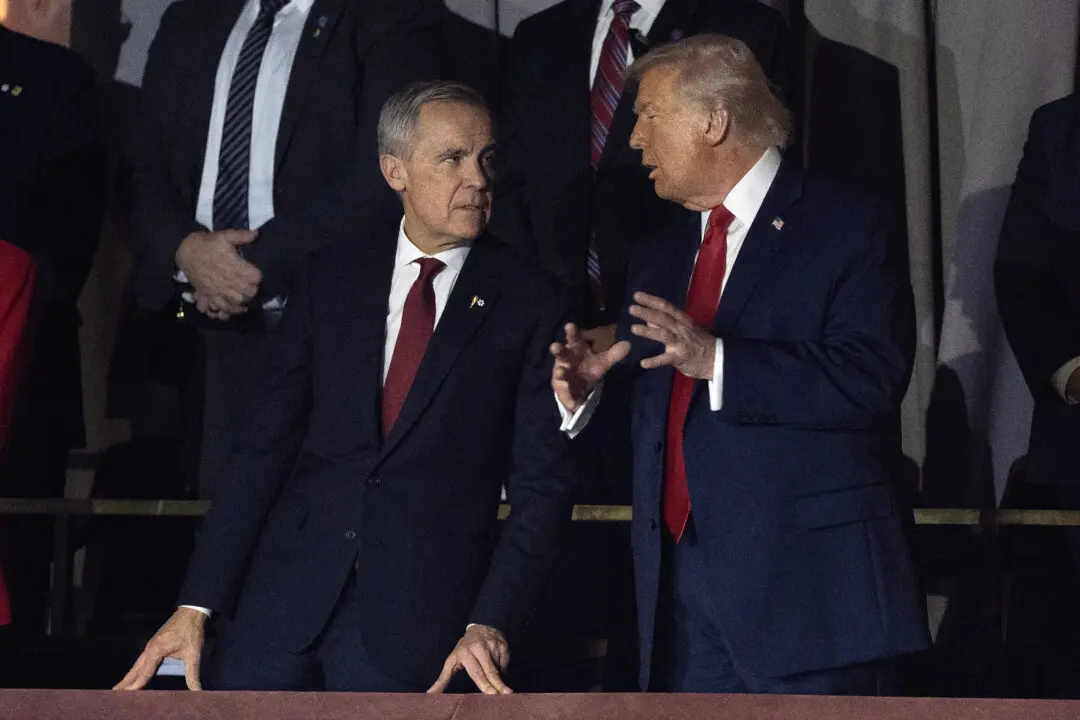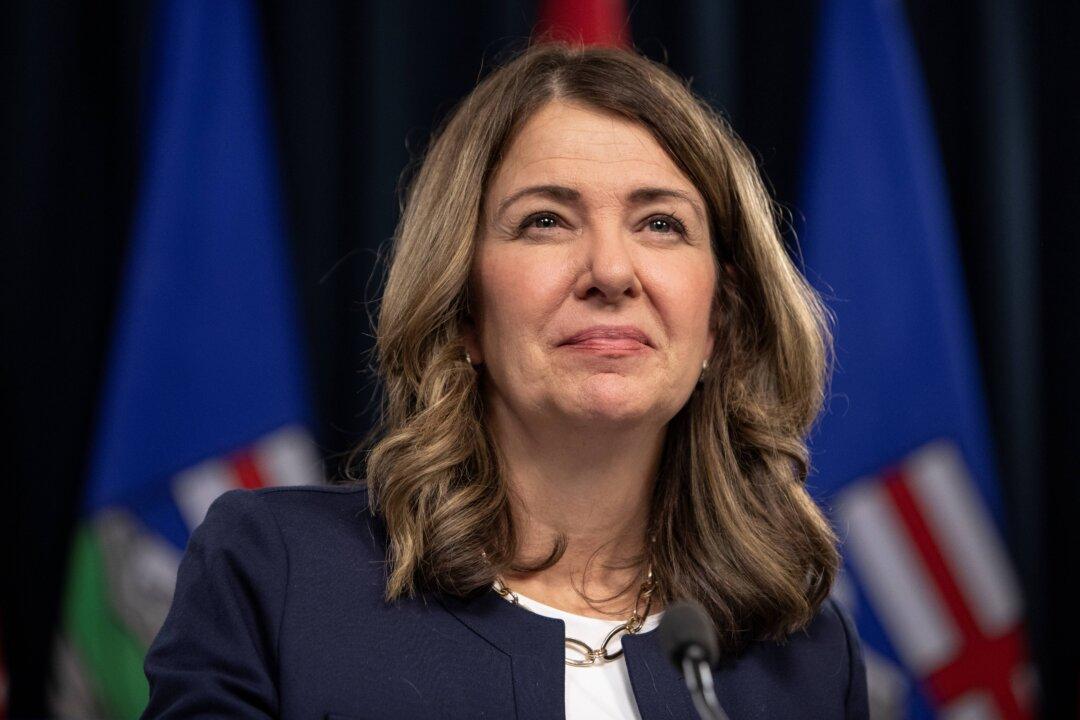Prime Minister Justin Trudeau said Canadian officials are “directly and strategically” engaging with U.S. counterparts to avoid three series of tariffs, which could stack on top of each other.
When speaking to reporters in Brussels on Feb. 12, Trudeau said Canada is facing “three different tariff threats.” He said the first is the original threat of 25 percent tariffs on all Canadian imports and 10 percent on oil and gas, which was set to take effect on Feb. 4.





